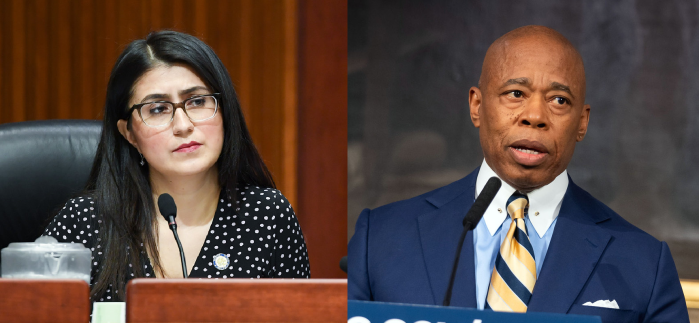By The Times/Ledger
Until last Monday, the world outside of southeast Queens paid little attention to the Rev. Charles Norris, the pastor of the Bethesda Missionary Baptist Church in Jamaica. Sadly, a few careless comments have thrust this dedicated minister into the media spotlight.
In remarks delivered in Harlem at the Rev. Al Sharpton's Martin Luther King Day service, Rev. Norris recounted the events that led to his becoming a minister. He noted that he had been hired and “fired by two Jews” twice before being hired by another Jew, Jesus. What exactly he intended to convey by these words remains unclear. Nevertheless, there is no question that his remarks were divisive. There was no purpose served by mentioning in such a flippant manner that his employers had been Jews. The fact that he added that his current boss, Jesus, is also a Jew had to be small comfort for the city's Jewish community.
Since then, Rev. Norris has offered only a watered-down apology in which he appears not to grasp the impact of his words. He has been dismissed in the media as a “crank” and a “racist” by people who know little of his efforts to feed and clothe the poor in southeast Queens and instead saw in him an opportunity to take a shot at the campaign of Hillary Clinton.
Rev. Norris' timing could not have been worse. The preacher spoke at what has become the city's largest celebration of Martin Luther King Day. In the congregation were some of the city's most powerful political leaders – with the exception of Mayor Giuliani, who reportedly was not invited. In the wings was Hillary Clinton, who is running to represent New York in the U.S. Senate.
In the days that followed, several leaders, including Rev. Sharpton, denounced the comments of Rev. Norris. But at the time the words were spoken, nobody challenged the minister. Nobody walked out of the room. In fact, some in the audience cheered him on with an amen. What were they thinking?
We were particularly impressed by Congressman Meeks' comments about this controversy. But not in a positive way. Interviewed on a popular radio talk show, Meeks tried to explain that, unlike whites, black people could not be “racists” because only people in power could practice racism. That, of course, is nonsense. Racism and hatred are equal opportunity employers.
Martin Luther King Day ought to serve as an occasion for remembering the tremendous sacrifice of all who joined in the struggle to free this nation from the bonds of racism. American Jews in particular played a role in the Civil Rights Movement. In the 1960s, many young Jewish men and women boarded buses in New York City and headed south to help register black voters. A few never came home.
It is natural that in New York City this holiday, like almost all others, has become politicized. Each year the media pays a great deal of attention to which politicians show up for Sharpton's service and which do not. That's why Hillary was there and not in Buffalo. But Martin Luther King Day is about so much more than politics. We have yet to achieve a society where people are judged by the content of their hearts. We still have bigots buying billboards in Queens to denounce immigrants and we still have prominent preachers who want to drive the “white interlopers” out of Harlem.
The annual celebration of the life of Dr. King reminds us of how far we have come. Sadly, other words remind us of how far we have to go.
































